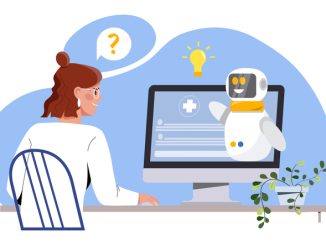
In the rapidly evolving landscape of healthcare innovation, the potential of biomarkers is garnering significant attention and debate among experts
CREDIT: This is an edited version of an article that originally appeared on Medscape
At a recent health conference, experts engaged in discussion over the emerging potential of biomarkers, raising questions about their clinical relevance and practicality. In this article, we look at the insights that arose from the discussion.
Manuel Marina Breysse, MD, a cardiologist and CEO of Idoven, believes they have much potential. “If you look at history, every single time there is a new device, or a new way to measure something, that allows us to change everything. It’s a way to measure something that has never been measured before. The beauty of that is we are dealing with big data [and] super-computational power.”
Łukasz Kołtowski, MD, first chair at the Department of Cardiology at the Medical University of Warsaw, explained how biomarkers could be digitised. “If a technology is externally validated, the next step on the road to the clinic is for it to be recommended in a European guideline. It’s only after that, when bigger players will get involved, it can be pushed out in the market, which is a journey that can take years. That is even before addressing the issue of national healthcare system reimbursement; But even if a novel technology does overcome these hurdles and has been shown, for example, to improve the quality of life or reduce mortality or hospital admissions, that doesn’t mean it will automatically get adopted.”
The Future
Despite the challenges, digital biomarker technologies are making strides in some specialties, such as the numerous examples of artificial intelligence being used to triage images in radiology.
Currently, this is subjectively quantified by a human in a way that is “not very reproducible,” according to Jakob Nikolas Kather, MD, professor of clinical artificial intelligence at Technische Universität Dresden, Dresden. “Computer-based image analyses could more reliably and reproducibly assess tumour staining, which would not only improve patient selection for immunotherapy but also make clinical trials easier because if you have a more quantitative biomarker, you have…less uncertainty in your clinical trial recruitment.”
Given current workforce challenges, Berger said, it’s currently not possible to monitor people for that long, but blankets can be equipped with sensors that set off an alarm if a patient who should not stand up on their own starts moving. That way nurses can be alerted to rush to a patient within a very short timeframe. You can also transfer this in a home setting, of course, it’s far away from routine use.”



Be the first to comment